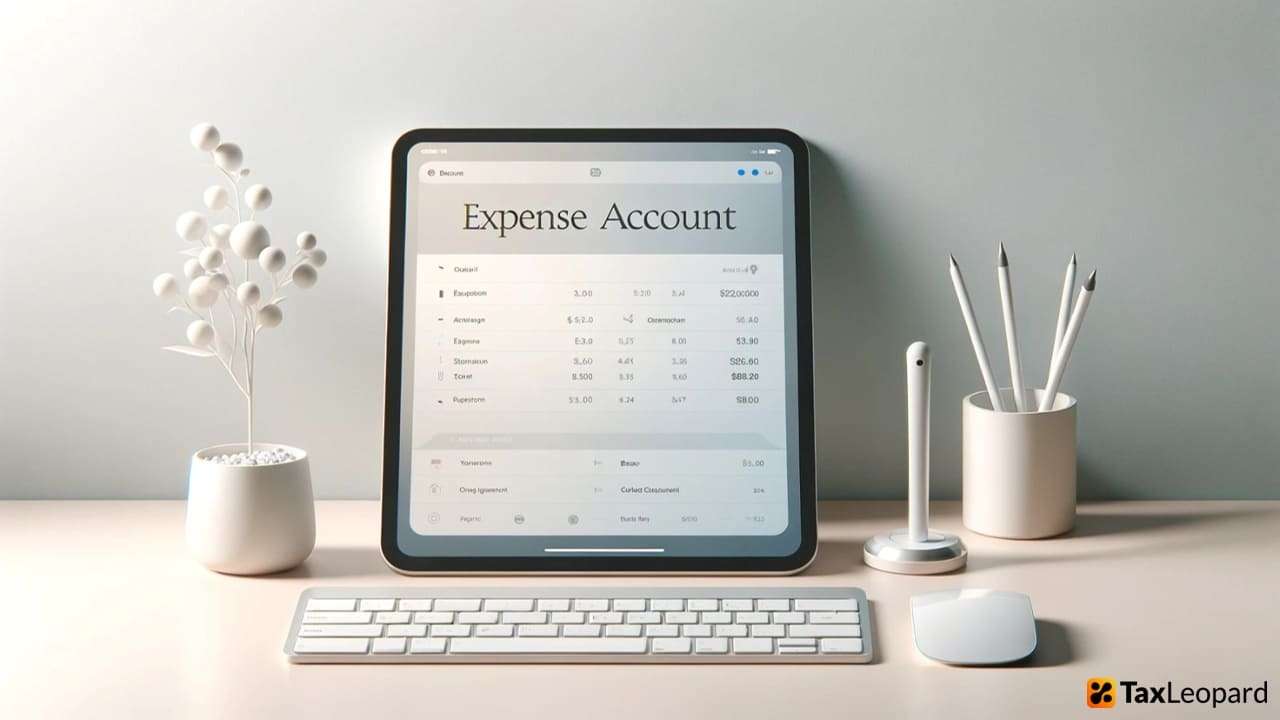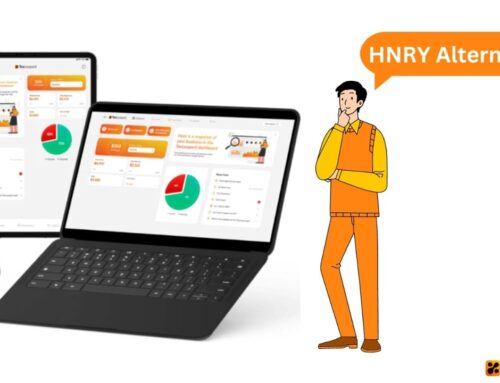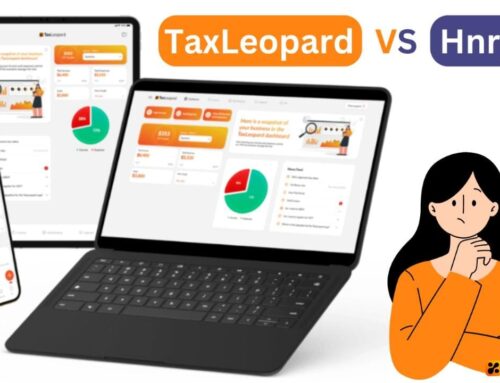The complexities of business finances often lead to confusion, especially when it comes to managing expenses. A clear understanding of expense accounts can significantly streamline financial operations. An Expense Account is a vital part of the accounting books, serving as a temporary account that tracks expenses incurred during an accounting period. These accounts, ranging from travel expenses to depreciation, are crucial for accurate bookkeeping and financial analysis. They not only ensure compliance with tax laws but also aid in generating revenue by keeping track of deductible and non-deductible expenses.
Through a well-organized chart of accounts, businesses can manage their transactions, equity, and various expenses effectively, ensuring every dollar spent contributes to generating revenue. In this article, we will tell you what are expense accounts and the types of expense accounts
What is an Expense Account?
An Expense Account is an important component in accounting that tracks the money spent by a business on operational activities. These expenditures, ranging from salary payments to utility bills, are recorded as debits, signifying a decrease in assets or an increase in liability. Notably, expenses like rent and salary are considered temporary, impacting the financial period they occur in.
Employers often reimburse employees for business expenses incurred, which can include travel or supplies, making these outlays deductible from the company’s income. Effective bookkeeping ensures accurate tracking and reimbursement of these expenses, highlighting the importance of meticulously managing an Expense Account to maintain financial health.
Types of Expense Accounts
Operating Expenses
Operating expenses are costs that a business incurs through its normal business operations. These include rent expenses, utilities expenses, and payroll, which are essential for maintaining the day-to-day activities of a company. Operating expenses directly affect a business’s taxable income as they are fully or partially deductible, reducing the overall tax liability. This category also covers advertising expenses and insurance payments, reflecting the variable nature of some costs that can increase or decrease based on business activity. Operating expenses are recorded in the income statement, providing insights into the company’s operational efficiency over the fiscal year. When analyzing these expenses, businesses often utilize tools such as a WordPress Chart Plugin to visualize and comprehend the data effectively, enabling informed decision-making and strategic planning.
Non-Operating Expenses
Non-operating expenses are costs that are not directly tied to a business’s primary activities. These include interest expense from business loans, losses from exchange rates, or expenses related to investments. Unlike operating expenses, non-operating expenses may not be fully deductible, impacting the business’s net income and tax deductions differently. The Internal Revenue Service (IRS) considers these as necessary for understanding the full financial picture but distinguishes them for their non-core nature. Recording these expenses helps organizations manage their finances compliantly, reflecting on the income statement’s bottom line and affecting the overall financial health.
Capital Expenditures
Capital expenditures (CapEx) represent the amount of money spent on acquiring or upgrading physical assets such as property, plant, and equipment. These are considered investments in the business’s future, rather than expenses incurred during ordinary operations. Capital expenditures are capitalized rather than expensed, meaning their value is depreciated over the useful life of the asset, impacting the balance sheet and providing tax benefits over time. This category includes costs for new buildings, major equipment purchases, and repairs that extend an asset’s life, essential for a business aiming to expand or update its operations for efficiency. – says Martin Kanaan, Head of Marketing and Business Development at MakoLab
Classifying Business Expenses
Direct vs. Indirect Expenses
Direct expenses are costs that a business incurs directly tied to producing goods or services. These include direct labour, materials, and manufacturing supplies. They are essential for business operations and appear on the income statement as part of the cost of goods sold (COGS). Direct expenses help in determining the actual cost of manufacturing a product or providing a service, making them crucial for pricing and profitability analysis.
Indirect expenses, on the other hand, are not directly linked to production. These include rent expenses, utilities expenses, insurance payments, and administrative salaries. Indirect expenses are necessary for the overall functioning of a business but do not directly contribute to the production process. They are considered operating expenses and are essential for maintaining a conducive business environment. These costs are deducted from the company’s revenue to determine taxable income, affecting the net profit and tax liability.
Fixed, Variable, and Periodic Expenses
Fixed expenses are costs that do not change with the level of production or sales activities, such as rent expenses, insurance payments, and salaries. These expenses are predictable and remain constant over time, making budgeting and financial planning more straightforward. Variable expenses, however, fluctuate with business activity levels. Examples include raw materials, direct labour, and advertising expenses. They increase as production increases and decrease when production slows. Periodic expenses occur at irregular intervals and are not directly tied to production levels, such as repair and maintenance costs or seasonal marketing campaigns.
- Fixed Expenses:
- Remain constant regardless of business activity.
- Include rent, salaries, and insurance payments.
- Facilitate easier budgeting and financial planning.
- Variable Expenses:
- Fluctuate with the level of business activity.
- Include costs of raw materials and advertising.
- Adjust with production increases or decreases.
- Periodic Expenses:
- Occur at irregular intervals, not directly tied to production.
- Include maintenance costs and seasonal marketing.
- Require strategic planning for financial management.
Managing and Recording Expenses in Accounting
In Accounting, managing and recording expenses can often seem like a daunting task for business owners, but it doesn’t have to be. With TaxLeopard, you have a comprehensive application at your fingertips, designed to simplify every aspect of your financial management. From meticulous bookkeeping to ensure accurate recording of every transaction in your expense accounts, to streamlined invoicing and efficient logbook maintenance, TaxLeopard covers all bases. Whether it’s lodging your BAS, preparing tax returns, generating insightful reports, or even handling ABN/GST registrations, TaxLeopard offers a seamless solution. Embrace TaxLeopard and turn the complexity of financial management into a straightforward, stress-free process.
Bookkeeping for Expense Accounts
Bookkeeping for Expense Accounts involves tracking all expenditures, from utility payments to salaries, ensuring accurate financial records. Deductible expenses, like rent, decrease taxable income. Proper accounting categorizes each expense, distinguishing between debit and liability while recording reimbursements to reflect employer payments. This process is crucial for managing business expenses efficiently, and maintaining a clear financial overview.
TaxLeopard simplifies bookkeeping for expense accounts with its user-friendly Bookkeeper feature, ensuring accurate tracking of expenditures. This streamlines financial management, allowing for effortless categorization and analysis of expenses, making it an ideal solution for maintaining up-to-date and compliant financial records.
Conclusion
Expense Accounts play a pivotal role in the financial health of a business, offering clarity on operational costs and aiding in strategic decision-making. They encompass a range of costs, from fixed and variable to entertainment and travel expenses, each with its implications on taxable income and tax liability. By understanding and utilizing different types of expense accounts, businesses can maximize deductions and manage cash flow efficiently. How does your business leverage expense accounts to optimize financial performance?
FAQs
1. Are Expense Accounts considered temporary?
Yes, they are temporary accounts, cleared at the end of each accounting period.
2. What role does an Expense Account play in tax deductions?
It helps identify deductible expenses, reducing taxable income.
3. How does depreciation fit into Expense Accounts?
Depreciation is recorded as an expense for the gradual wear of assets over time.
4. Can Expense Accounts include travel expenses?
Yes, travel expenses are a common type of deductible business expense.
5. What is the difference between fixed and variable expenses?
Fixed expenses remain constant, while variable expenses change with business activity.





